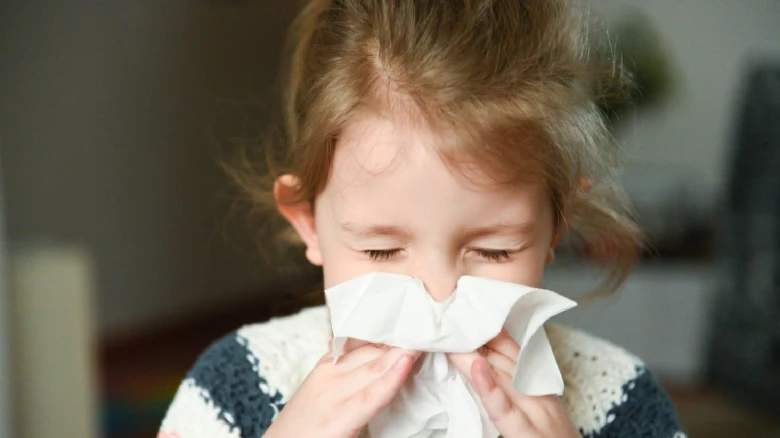Take care to keep a safe distance from sick individuals who are exhibiting respiratory infection symptoms.
Digital Desk: The rise in respiratory infections that coincides with winter poses a serious risk, especially to young children whose immune systems are still developing. Being proactive in reducing your child's exposure to viruses like the flu, rhinovirus, strep throat, and the ubiquitous COVID-19 is necessary to protect them during this season. These vital pointers can help you prepare for winter and keep your children safe.
How to Prevent Children from Contracting Flu
1. Keep Away from Sick People: Take care to keep a safe distance from sick individuals who are exhibiting respiratory infection symptoms. To lower the chance of contracting infectious diseases, hospital visits should be kept to a minimum, even for routine checkups.
2. Timely Flu Vaccination: Give your kids the flu shot well before winter arrives. The optimal months to make sure immunity is developed before the flu season begins are ideally June or July. One of the best defenses against influenza is still vaccination.
3. Say No to Smoking: Refrain from smoking and limit your child's exposure to passive smoke as it can harm their respiratory system. Children who are exposed to secondhand smoke throughout the winter months are more vulnerable to respiratory infections and are at risk of developing asthma and recurrent coughing.
4. Handle Cold Symptoms: Use a nasal aspirator to clean the nose and saline nasal drops to ease nasal obstruction if your child has a cold. To counteract the dry winter air and avoid the beginning of a dry cough, introduce a humidifier into the room. Take care not to over-humidify, though, as this might cause asthma attacks in those who are vulnerable.
5. Place a Strong Stress on Hand Hygiene: Instruct your kids on the value of proper hand washing procedures. An easy yet effective strategy for stopping the transmission of illnesses is practicing good hand hygiene.
6. Get ready for Respiratory Conditions: Speak with your pediatrician beforehand if your child has a history of respiratory issues like asthma or wheezing. To control any triggers and maintain your child's respiratory health throughout the winter, create a treatment plan.
7. Expose Myths About Immune Boosters: Debunk rumors that vitamin C, immune-stimulating agents, and multivitamins can prevent coughs and colds. Although they promote general health, these supplements cannot protect kids from wintertime illnesses that are carried by the air.
It's best to limit social events and travel throughout the winter. Particularly in enclosed areas, crowded areas raise the chance of contracting illnesses. The likelihood of illnesses spreading and being contracted can be greatly decreased by avoiding needless travel, especially by air.
In summary, the key to keeping your kids safe this winter is to implement a comprehensive plan that includes vaccinations, good hygiene practices, and lifestyle modifications. You may make your child's environment safer and lower their risk of respiratory infections during the hard winter months by using these strategies.

Leave A Comment